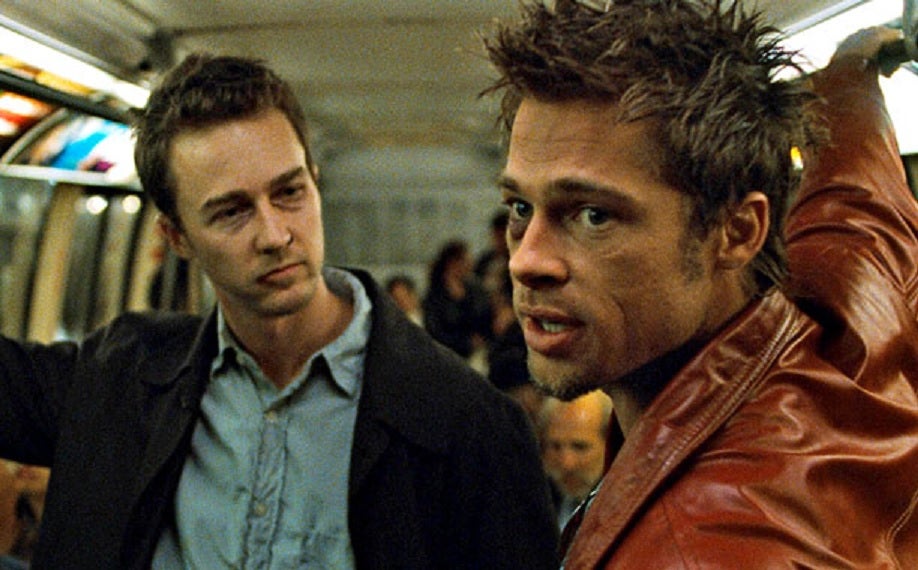Back for Round Two: but do we want these character comebacks in fiction? Week in Books column

Tyler Durden – or Brad Pitt from Fight Club as he is more commonly known – is back, even before the much-anticipated graphic-novel sequel that is due later this year. Chuck Palahniuk has given Tyler a new lease of life in a book of short stories, Make Something Up, or so we are told. A warm-up for The Big Fight, you might call it. Read the story, “Expedition”, to know more, but beware the thumping disappointment that might – and often does – accompany the reincarnation of iconic or cultish characters such as the dark, doomy Durden.
Palahniuk sets the tone with a Marquis de Sade quote: “In order to know virtue we must first acquaint ourselves with vice.” Well, quite. How he imagines Durden’s rehabilitation or otherwise is something we’ll get to later. Suffice to say, thumping disappointment features fairly high up.
It’s a tricky business for authors to bring our best-loved, or best-hated, characters back from the dead, or at least back from fictional purgatory where they have lingered as young men or women, not quite dead or alive. When they return, they often let us down, and sometimes undermine the integrity of their earlier selves in our eyes. Irvine Welsh’s recycled characters are one example: Sickboy and the rest were inspired creations in Trainspotting (1993); iconoclastic figures who summed up the nihilistic hedonism of the Thatcher generation. But then Sickboy returned in the 2002 sequel, Porno, and the 2012 prequel, Skagboys, and he didn’t appear as relevant. The world had moved on, and the character hadn’t, so Sickboy lost his edge and appeared soft and saggy with nostalgia. And then, just when we were over it, he returned again in Welsh’s most recent novel, A Decent Ride. It’s as if Welsh can’t let go of Sickboy’s life when we have, a long time ago.
Stephen King’s sequel to The Shining (1977) is a different case, partly because of the time lapse between King’s third novel and its follow-up, Doctor Sleep, in 2011, in which little Danny Torrance is now in his 40s and working as an orderly in a hospice, still fighting his childhood demons. It seemed to please many Shining fans, though when I gave the book to my brother, the most fanatical of fanatics, it remained half-read. It’s not the most scientific evidence but I suspected anti-climax on his part.
Atticus Finch is coming back in July, 20 years older than he left us in the pages of To Kill a Mockingbird, though still living in Alabama. Scout is all grown up and perhaps embroiled in the Civil Rights movement. According to the head of News Corp, which owns Harper Collins (Harper Lee’s publisher), Go Set a Watchman is a story that will have “a profound impact” on readers. He made this thunderingly boring statement after reading it, we’re told, in words designed to give little away. I wonder if it can only ever disappoint, because these characters are not living in the moment they were – vigorously and heroically –in the first. Lee’s case doesn’t compare with novelists who bring back characters, though, because she wrote this book before the one that was to become a classic.
The authors who come at reincarnation sideways are the ones who pull it off, I think. Margaret Atwood repositioned some minor characters from Oryx and Crake to put them centre stage in The Year of the Flood and both books seem richer for the cross-referrals. Kate Atkinson, who told the story of Ursula Todd in Life after Life, has now dramatised the life of her brother, Teddy, in A God in Ruins, which isn’t a sequel or a rebooting but could be a bit of both.
To return to Tyler Durden, then. He’s in “Expedition” all right, though not as we know him, and a kind of distant being as the narrator takes his tour into the underbelly of society – 19th-century Hamburg this time. His identity is revealed in the final pages, as he disappears, and the narrator is told that he won’t be coming back, “not for many more years”. Maybe this is just as it should be.
Chronicle of a theft untold, for a while at least
What is the fate of the first-edition copy of Gabriel García Márquez’s One Hundred Years of Solitude, that was stolen at the International Book Fair of Bogota this week? Isn’t it too hot to sell, even on the black market, rather like Munch’s The Scream and Madonna, (stolen and mysteriously recovered in 2006)? Perhaps we will one day know the manuscript’s fate, its story unravelling like a plotline from Donna Tartt’s The Goldfinch...
Join our commenting forum
Join thought-provoking conversations, follow other Independent readers and see their replies
Comments
Bookmark popover
Removed from bookmarks